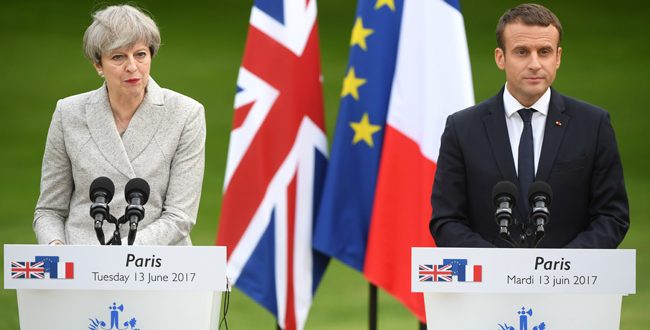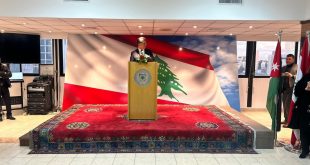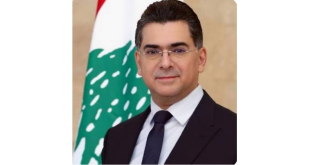The leaders of France and Britain Tuesday announced an anti-terror action plan to crack down on radicalization through social media. After talks with British Prime Minister Theresa May in Paris, French President Emmanuel Macron said both countries agreed that social networks were not doing enough to stamp out terror propaganda.
Speaking after terror attacks in Manchester and London, Macron said the two countries had worked on a “very concrete” action plan. He said one of the key measures would aim at preventing the incitement of “hate and terrorism” on the internet.
May said she and Macron agreed that “more should be done to tackle the terrorist threat online.”
She said the British and French campaign was aimed to “ensure the internet cannot … be used to host the radicalizing material that leads to so much harm.”
May said the British government was already working with social media companies “to halt the spread of extremist material and poisonous propaganda that warps young minds,” adding, “But we know they need to do more.”
The campaign includes exploring the possibility of legal penalties against tech companies if they fail to take the necessary action to remove unacceptable content, May said.
On Brexit, when asked at the joint news conference with May whether he agreed with German Finance Minister Wolfgang Schaeuble, who earlier told Bloomberg that Britain would find “open doors” if it changed its mind on leaving the European Union, Macron replied, “The door of course is still open as long as Brexit negotiations have not been concluded, but a sovereign decision to leave the EU has been taken and I respect that decision.”
May said the timetable for Brexit negotiations remained on course with talks due to start next week. Macron’s comments came as May faces a tug of war within her own party over her Brexit strategy following a disastrous snap election that she called. Earlier Tuesday, as May made progress in securing a deal with the Democratic Unionist Party, a small Northern Ireland party, with whom she hopes to govern, as she sought to avoid a second election that could deepen Britain’s worst political turmoil since last June’s shock vote to leave the EU.
After losing her parliamentary majority in a botched gamble on a snap election, May is so weakened that her Brexit strategy has become the subject of public debate inside her own party, with calls for her to take a more business-friendly approach.
She met DUP leader Arlene Foster, whose euroskeptic Northern Irish party has 10 parliamentary seats, for over one hour of talks in Downing Street.
“Discussions are going well with the government,” Foster said. “We hope soon to be able to bring this work to a successful conclusion.”
A Downing Street spokesman declined to comment. But a deal with the DUP risks destabilizing Northern Ireland by increasing the influence of pro-British unionists. They have struggled for years with Irish Catholic nationalists, who want the British province to join a united Ireland.
Some involved in the Irish peace process are alarmed because the 1998 Good Friday peace accords call for the British government to be neutral in the politics of Northern Ireland.
Foster’s rivals in Northern Ireland, such as Sinn Fein’s Gerry Adams, have objected. “Any deal which undercuts in any way the process here or the Good Friday Agreement is one which has to be opposed,” he said.
Former Prime Minister John Major said that he was concerned May’s plan to govern with the support of the DUP could pitch the province back into turmoil by persuading “hard men” on both sides of the divide to return to violence.
While the DUP is deeply euroskeptic, it has balked at some of the practical implications of a so-called hard Brexit – including a potential loss of a “frictionless border” with the Republic of Ireland – and talks will touch on efforts to minimize the potential damage to Northern Ireland.
The stakes for May are high. Without a so-called confidence and supply deal with the DUP, her party risks losing the vote next week on the Queen’s Speech. If that happens, Jeremy Corbyn, leader of the opposition Labour Party, will demand a chance to try to form a government by uniting progressive factors in the House of Commons
 Lebanese Ministry of Information
Lebanese Ministry of Information



